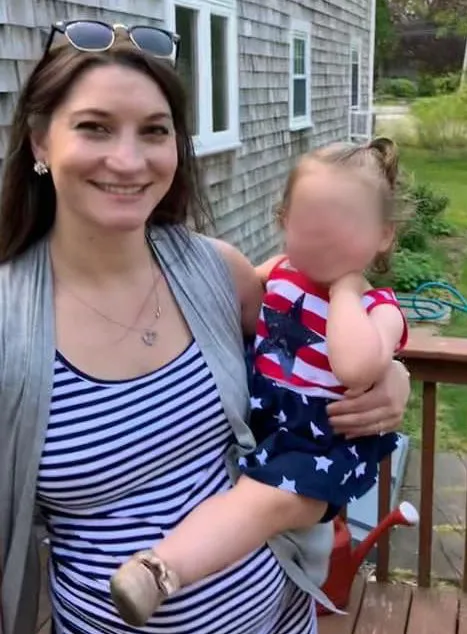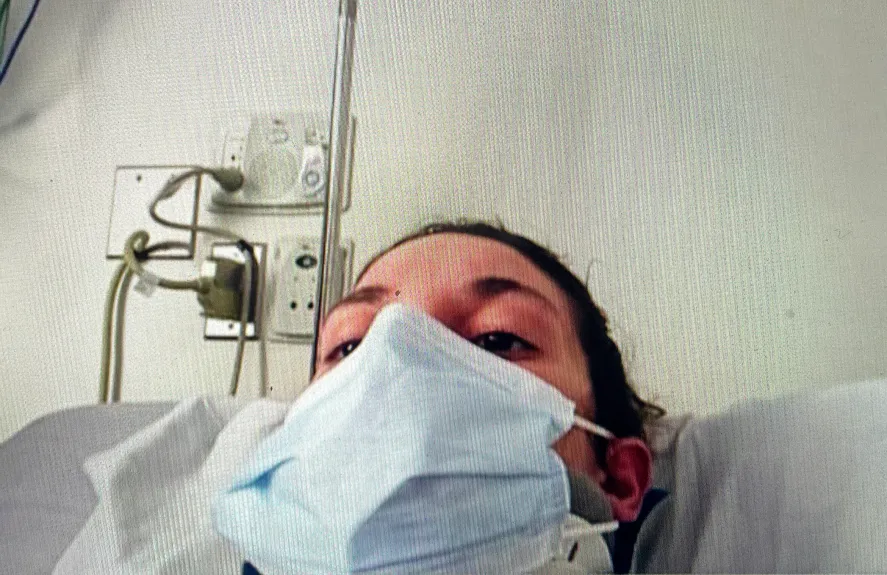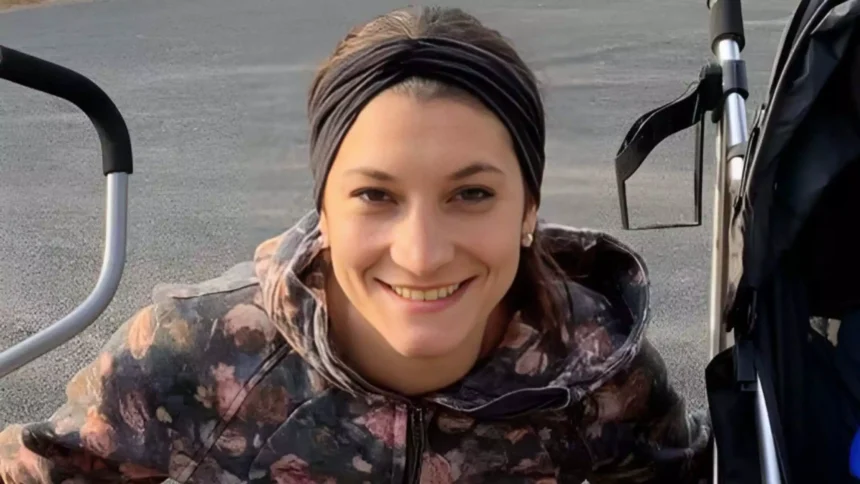In Duxbury, Massachusetts, Lindsay Clancy’s life drastically changed on January 24, 2023. At 32, she became the focal point of a tragic incident, shaking the community. A mother of three, Lindsay faced accusations of a heinous crime—murdering her own children. The unfolding narrative involves postpartum challenges, work-related anxiety, and a desperate struggle with mental health. Lindsay Clancy’s story is marked by unimaginable pain, prompting reflection on the difficulties individuals encounter when grappling with mental health issues.
Lindsay Clancy: Background
Lindsay Clancy’s background is rooted in the suburban town of Duxbury, Massachusetts. Born 32 years ago, she lived a seemingly ordinary life before a tragic incident altered its course. Little is known about her early years, but as a mother of three children, Cora, Dawson, and Callan, Lindsay was thrust into the challenges of motherhood. Reports suggest that she faced postpartum struggles and anxiety about returning to work, shedding light on the complexities of balancing family life and personal well-being.
The Victims
The victims of the Lindsay Clancy incident were her three children: Cora, Dawson, and Callan. Here is some in-depth information about each child:
- Cora:
- Age: Cora was a young soul, only 5 years old at the time of the tragic incident.
- Personality: Described as a vibrant and playful child, Cora’s life was just beginning to unfold. Friends and family remember her infectious laughter and curiosity, showcasing a typical spirit of a child exploring the world around her.

Image Credit: Facebook
- Dawson:
- Age: Dawson, the second child, was 3 years old.
- Personality: At the tender age of 3, Dawson was likely a bundle of energy and innocence. Like many children his age, he might have been in the early stages of developing his unique personality, filled with exploration and the joy of discovery.
- Callan:
- Age: The youngest of Lindsay Clancy’s children, Callan was just 7 months old.
- Relevance: Being an infant, Callan’s life was in the early stages of dependency and discovery. The tragedy cut short the potential for a life full of milestones and experiences.
The Alleged Crime
Lindsay Clancy, a mother from Duxbury, Massachusetts, faced devastating allegations surrounding the tragic deaths of her three children: Cora, Dawson, and Callan. The incident unfolded in January, leading to a legal case that garnered significant attention.
Allegations and Charges
Lindsay Clancy was charged with three counts each of murder and strangulation, marking a heart-wrenching turn of events. Court documents revealed disturbing details, indicating that Clancy had allegedly researched “ways to kill” before the incident.
Legal Proceedings
Lindsay Clancy’s legal journey commenced with her plea of not guilty during the arraignment. The subsequent court hearings illuminated the intricacies of the case, emphasizing mental health issues. The progression of the case underscored the crucial need to address challenges in mental health and postpartum struggles.
Community Impact
The incident deeply affected the community, initiating conversations on mental health awareness and support for individuals experiencing postpartum challenges. It emphasized the necessity for empathy and comprehension towards those dealing with mental health struggles.
Legal Proceedings
Lindsay Clancy’s legal journey began following the tragic events in Duxbury, Massachusetts. The legal process unfolded with various court hearings, indictments, and notable events.
Arraignment and Charges
Lindsay Clancy, appearing virtually from her hospital bed, underwent a significant arraignment. In this session, she entered a plea of not guilty to charges encompassing two counts of murder, three counts of strangulation, and assault. These charges mirror the gravity of the alleged offenses.
Legal Timeline
- February 7, 2023: Prosecutors outlined a chilling timeline, providing minute-by-minute details of how Lindsay Clancy allegedly planned the murders.
- February 8, 2023: The Boston Globe presented a detailed timeline of events related to the case, shedding light on the sequence of occurrences.
- February 21, 2023: Reports highlighted Lindsay Clancy’s reported mental health struggles and treatment, providing context to the unfolding legal drama.
- February 9, 2023: Plymouth officials presented the investigators’ timeline of events during Lindsay Clancy’s arraignment, offering insights into the case
Disturbing Details
Court documents related to Lindsay Clancy’s case have revealed disturbing details surrounding her actions and potential motivations. These insights provide a glimpse into the tragic events that unfolded in Duxbury, Massachusetts.
Actions and Methods
- Search for Ways to Kill: Court documents allege that Lindsay Clancy researched “ways to kill” her children, underscoring a disturbing premeditation to the tragic incident.
- Use of Exercise Bands: Lindsay Clancy is accused of using exercise bands to strangle her three young children, highlighting a specific and harrowing method employed during the alleged crime.
- Evidence Collection: Unsealed documents list evidence collected in the case, suggesting a thorough investigation into the circumstances surrounding the tragedy.
Motivations
- Mental Health Struggles: Lindsay Clancy’s mental health struggles and treatment were highlighted in court documents, providing a backdrop to her actions and potentially contributing factors.
- Shocking Truth: A mental evaluation revealed shocking details behind Lindsay Clancy’s actions, uncovering a deeper understanding of her state of mind leading up to the tragic incident
Public Reaction
The Lindsay Clancy case has evoked strong reactions from the public, with media coverage and community responses playing a significant role in shaping the narrative. The impact extends beyond the local community, sparking discussions at the national level, particularly regarding maternal filicide.
Media Coverage
- National News Attention: The case received national media attention, with outlets like NBC Boston, Boston.com, and New York Post covering the tragic events and subsequent developments.
- Postpartum Anxiety Disclosure: Lindsay Clancy’s prior disclosure of postpartum anxiety on social media added a layer to the media coverage, leading to discussions about mental health and its potential role in the tragedy.
Community Responses
- Shock and Grief: The local community in Duxbury, Massachusetts, expressed shock and grief in response to the tragic deaths of the children and the subsequent legal proceedings against Lindsay Clancy.
- Support and Vigils: Some community members organized support initiatives and vigils, providing a space for collective mourning and solidarity.
Impact on Discussions
- National Filicide Discussions: Lindsay Clancy’s case has become part of a broader national discourse on filicide, contributing to discussions about the complexities surrounding parents harming their children.
- Mental Health Conversations: The case has prompted conversations about mental health, postpartum challenges, and the need for support systems for parents facing mental health struggles
Mental Health Considerations
The tragic case of Lindsay Clancy raises important questions about mental health, with indications of potential mental health considerations playing a role in the events. The broader conversation surrounding mental health and its impact on such tragic cases has gained attention.

Lindsay Clancy’s Mental Health Struggles
- Postpartum Psychosis: Lindsay Clancy’s case has been associated with postpartum psychosis, a severe but treatable maternal mental health condition. This may have contributed to the tragic events, shedding light on the challenges individuals face during the postpartum period.
- Timeline of Mental Health Struggles: A timeline of Lindsay Clancy’s reported mental health struggles and treatment highlights the complexities and barriers individuals may encounter in seeking mental health support.
Prevention and Awareness
The incident highlights the importance of recognizing, understanding, and supporting individuals facing mental health challenges during the postpartum period.
Lindsay Clancy’s case has sparked concerns about potential stigmatization of individuals facing postpartum mood disorders. It underscores the need to destigmatize mental health issues and encourage open conversations to promote understanding and empathy.
The tragedy prompts a call for increased education and support for individuals, families, and healthcare professionals. Comprehensive mental health education can empower communities to recognize and respond to postpartum mental health challenges effectively.



